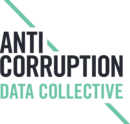Unknown foreign individuals control $1.7 trillion in U.S. private investment fund assets – Anti-Corruption Data Collective
Washington, D.C., April 16, 2024 – A staggering $1.7 trillion dollars of assets are managed by U.S. private investment funds controlled by unknown foreign individuals, with U.S. authorities virtually powerless to identify the persons involved. These funds may pose a significant corruption risk and threaten U.S. national security through intellectual property theft, money laundering and the financing of terrorism, the Anti-Corruption Data Collective (ACDC) said.
The finding is included in a public comment submitted by ACDC to the Department of Treasury’s Financial Crime Enforcement Network (FinCEN), in response to a proposed rule that would impose anti-money laundering requirements on certain categories of investment advisors. ACDC broadly welcomes the proposed rule, while identifying important loopholes in the proposed rule that need to be addressed.
To inform the public comment, ACDC analyzed more than 20 years of Form ADV responses submitted to the Security and Exchanges Commission (SEC) by investment advisors. This data contains information about 56,134 unique private funds managed by reporting advisers and totalling roughly $21 trillion in assets under management. Concentrating on fields related to the ownership of each fund, ACDC’s analysis finds:
- Over a quarter of the funds exhibit surprisingly concentrated ownership. 15,850 funds (28% of the total sample) list three or fewer beneficial owners. Almost half of the funds (25,387 or 45% of the total sample) have 10 or fewer beneficial owners.
- Half of the funds (28,070 private funds) have at least some non-US ownership. ACDC calculates that out of the total $21 trillion in private fund assets under management, $8.4 trillion (40%) are owned by unknown non-U.S. persons.
- Almost 5,000 private funds are controlled by private foreign individuals, having three or fewer beneficial owners and at least 50% non-U.S beneficial ownership. These 4,960 funds manage $1.7 trillion in assets.
FinCEN itself states in its proposed rule that “Russian elites and government entities are moving hundreds of millions of dollars annually through the U.S. financial system by using U.S. and foreign venture capital firms to invest in U.S. technology companies.” In 2022, ACDC and the Organized Crime and Corruption Reporting Project (OCCRP) scrutinized now sanctioned Russian billionaire Roman Abramovich’s investments in Cleveland BioLabs, an American pharmaceutical company that received funding from both the U.S. and Russian governments. The Federal Bureau of Investigation has warned that the Chinese government “routinely conceals its ownership or control of investment funds to disguise efforts to steal technology or knowledge.”
The rule proposed by FinCEN would require RIAs and Exempt Reporting Advisors (ERAs) to adopt an AML compliance program and implement internal controls, including the filing of suspicious activity reports (SARs), among other programs. However, the proposed rule puts off requiring advisers to private funds to identify the beneficial owners of all limited partner investors, pending the resolution of other regulatory processes.
David Szakonyi, co-founder and research lead at the Anti-Corruption Data Collective, said: “Until investors and persons with significant control over funds’ assets are identified and reported, the due diligence, transaction monitoring, and suspicious activity reporting proposed by FinCEN has only limited value. It is imperative that FinCEN establish a low-threshold beneficial ownership reporting requirement for investment advisors as soon as possible.”
Other important improvements to the proposed rule include expanding the definition of advisers to include managers of family offices and of certain real estate-focused funds. An upcoming report by ACDC, Global Financial Integrity and the FACT Coalition finds that billions of dollars in suspicious funds have likely been invested in U.S. commercial real estate during the past two decades, including through managed investment funds. A parallel rule proposed by FinCEN on anti-money laundering for the real estate sector entirely leaves out the often complex and opaque transactions behind commercial real estate deals.
More information: Transparency International U.S. comment on Real Estate NPRM, endorsed by ACDC
Finally, ACDC recommends that FinCEN work with inter-agency partners to address critical transparency and national security gaps involving private funds that will remain even after the entry into force of AML requirements for advisers to such funds.
For more information:
Michael Hornsby, Impact Manager, Anti-Corruption Data Collective
Michael@acdatacollective.org
David Szakonyi, Co-Founder and Research Lead, Anti-Corruption Data Collective
david@acdatacollective.org
